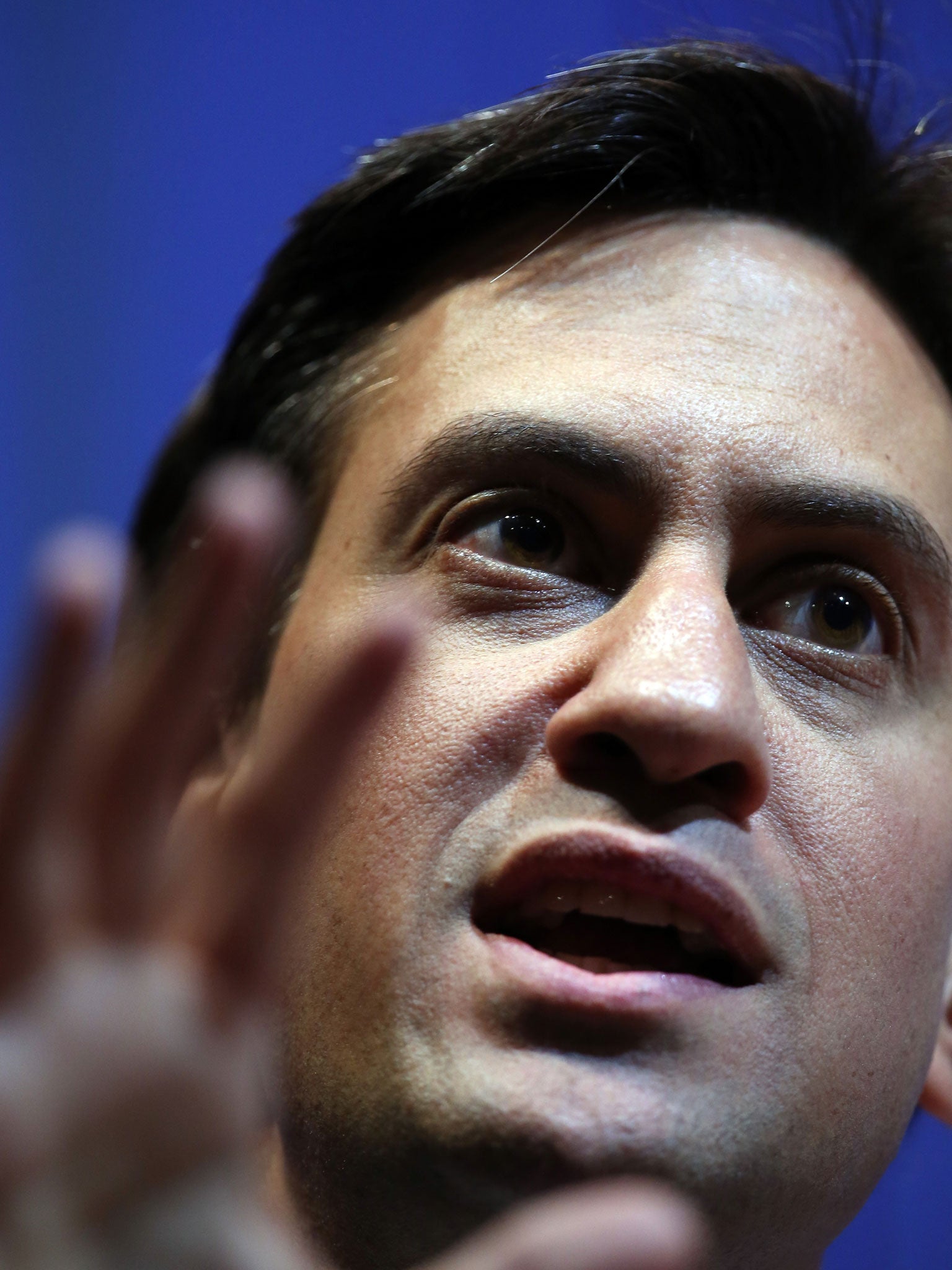How Ed Miliband learnt from the Blair-Brown psychodrama
Inside Westminster: The McBride revelations are a diversion the Labour leader does not need

Your support helps us to tell the story
From reproductive rights to climate change to Big Tech, The Independent is on the ground when the story is developing. Whether it's investigating the financials of Elon Musk's pro-Trump PAC or producing our latest documentary, 'The A Word', which shines a light on the American women fighting for reproductive rights, we know how important it is to parse out the facts from the messaging.
At such a critical moment in US history, we need reporters on the ground. Your donation allows us to keep sending journalists to speak to both sides of the story.
The Independent is trusted by Americans across the entire political spectrum. And unlike many other quality news outlets, we choose not to lock Americans out of our reporting and analysis with paywalls. We believe quality journalism should be available to everyone, paid for by those who can afford it.
Your support makes all the difference.There is one silver lining for Ed Miliband in the dark clouds cast over a critical Labour conference by the damaging revelations about the faction- fighting, political assassinations and smears by Damian McBride, who was Gordon Brown’s spin doctor.
His book is a dramatic reminder of the feud between two blood brothers after Tony Blair overtook Mr Brown, the older and more experienced of the two, to win the Labour leadership in 1994. But it also reminds us that Labour did not descend into civil war in 2010 when two real brothers contested the leadership, and one knifed his older and more experienced brother.
It could easily have happened. Feelings were running high when David Miliband lost. Yet he conducted himself with dignity before finally deciding to leave the stage free for his brother and take up a job in New York.
Similarly, Ed Miliband, below, has tried to learn lessons from the Blair-Brown era. He has tried to heal wounds and unify his party. He has been “not Brown” as well as “not Blair”.
There are inevitably tensions and rivalries in any party. Since 2010, there have been significant differences over strategy between Ed Miliband and Ed Balls, the powerful shadow Chancellor, who also stood for the leadership then. But for the most part, the two men have fought their battles in private.
As two senior figures in the Brown camp, as they both say, they had a “front-row view” of the Blair-Brown psychodrama. There are tensions inside Ed Miliband’s inner circle too, but these are largely kept behind closed doors.
Having said that, the McBride revelations are a diversion Ed Miliband does not need as he prepares for the Labour conference.
The Mafia-like operation of the Brownites will do some damage to a party that likes to call the Conservatives “the nasty party”, as well as to what remains of Mr Brown’s reputation.
Even some of the participants were shocked yesterday by the rawness of Mr McBride’s disclosures, not least the ruthless “assassination” of Mr Brown’s potential rivals for the Labour crown when Mr Blair stood down.
As one former Blair aide told me: “We saw all the bodies pile up as people resigned or said they wouldn’t run for leader. We told ourselves that Gordon’s team couldn’t be behind all of it. Now we know they were.”
The revelations are also a reminder of Mr Blair’s biggest failure: to use his power of patronage as Prime Minister to ensure there was a credible “stop Brown” candidate when he stood down. It seems that Mr Blair did not stand in the way when the Brown bulldozer rolled towards natural Blair allies such as John Reid and Charles Clarke, who would both have had the courage to stand against Mr Brown.
With hindsight, Mr Blair did not stand by his men, presumably in the hope he could hang on to his own job for a bit longer. In other words, he calculated that Mr Brown would not move against him as long as there were no rivals in sight. If so, Mr Blair was wrong, because Team Brown launched a coup in 2006, forcing him to announce his Downing Street departure timetable.
For me, the most striking image in Mr McBride’s book is him logging into Mr Brown’s email account, and spending hours fishing out cabinet papers so he could leak stories to undermine Brown rivals.
That so much energy in both the Brown and Blair camps was devoted to fighting each other when they were supposed to be running the country is a terrible advert for a party telling voters it has learnt from its mistakes as it seeks a return to power in 2015.
Join our commenting forum
Join thought-provoking conversations, follow other Independent readers and see their replies
Comments